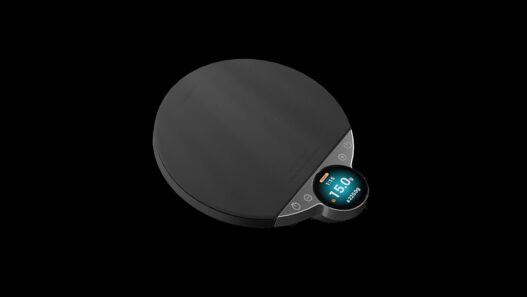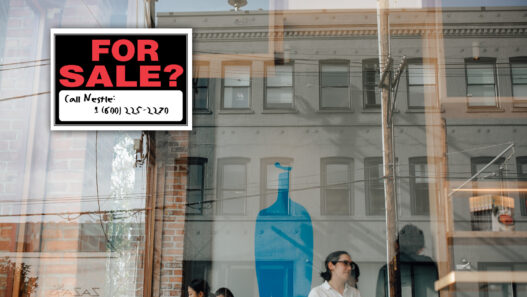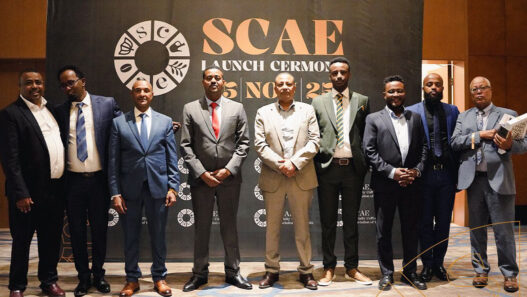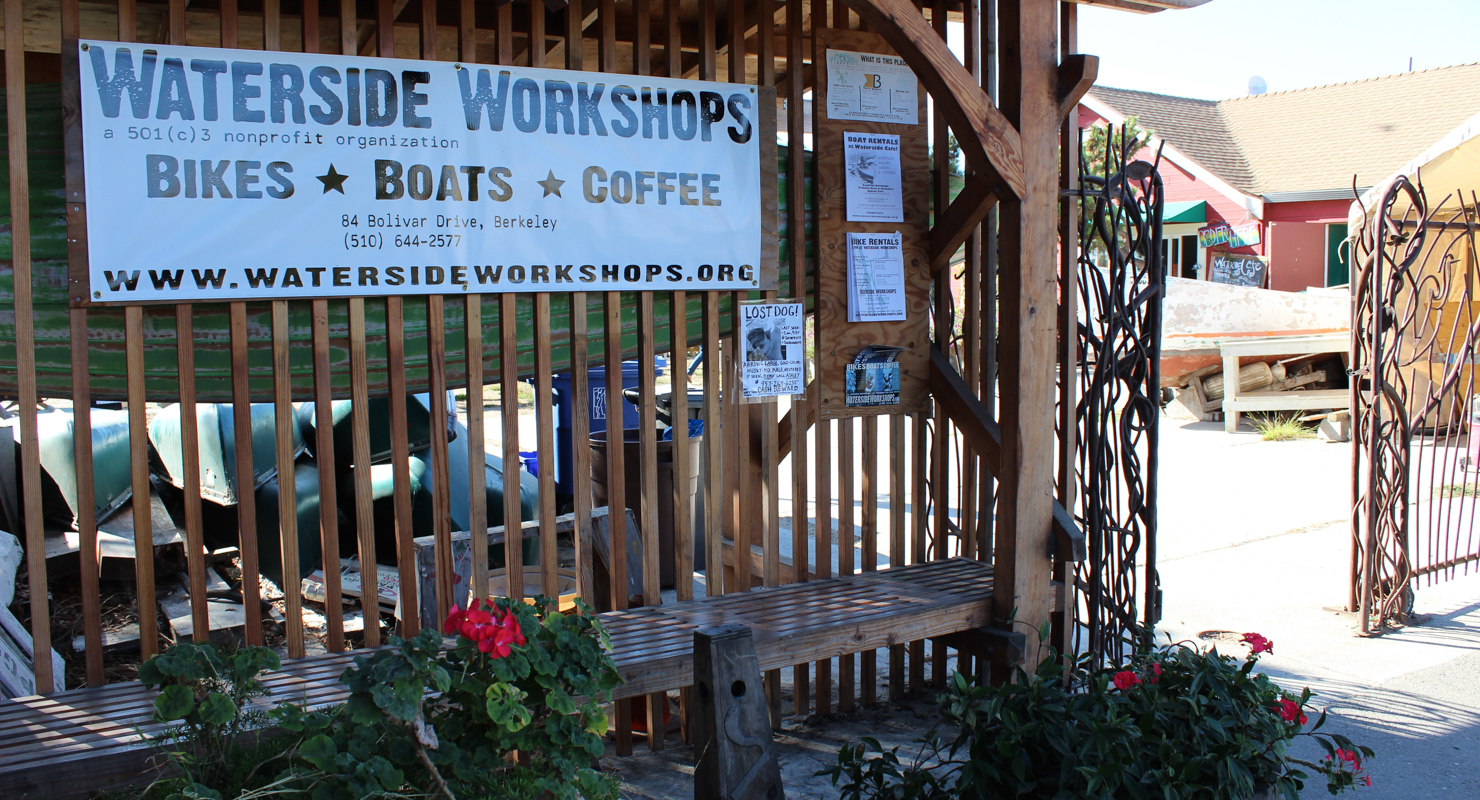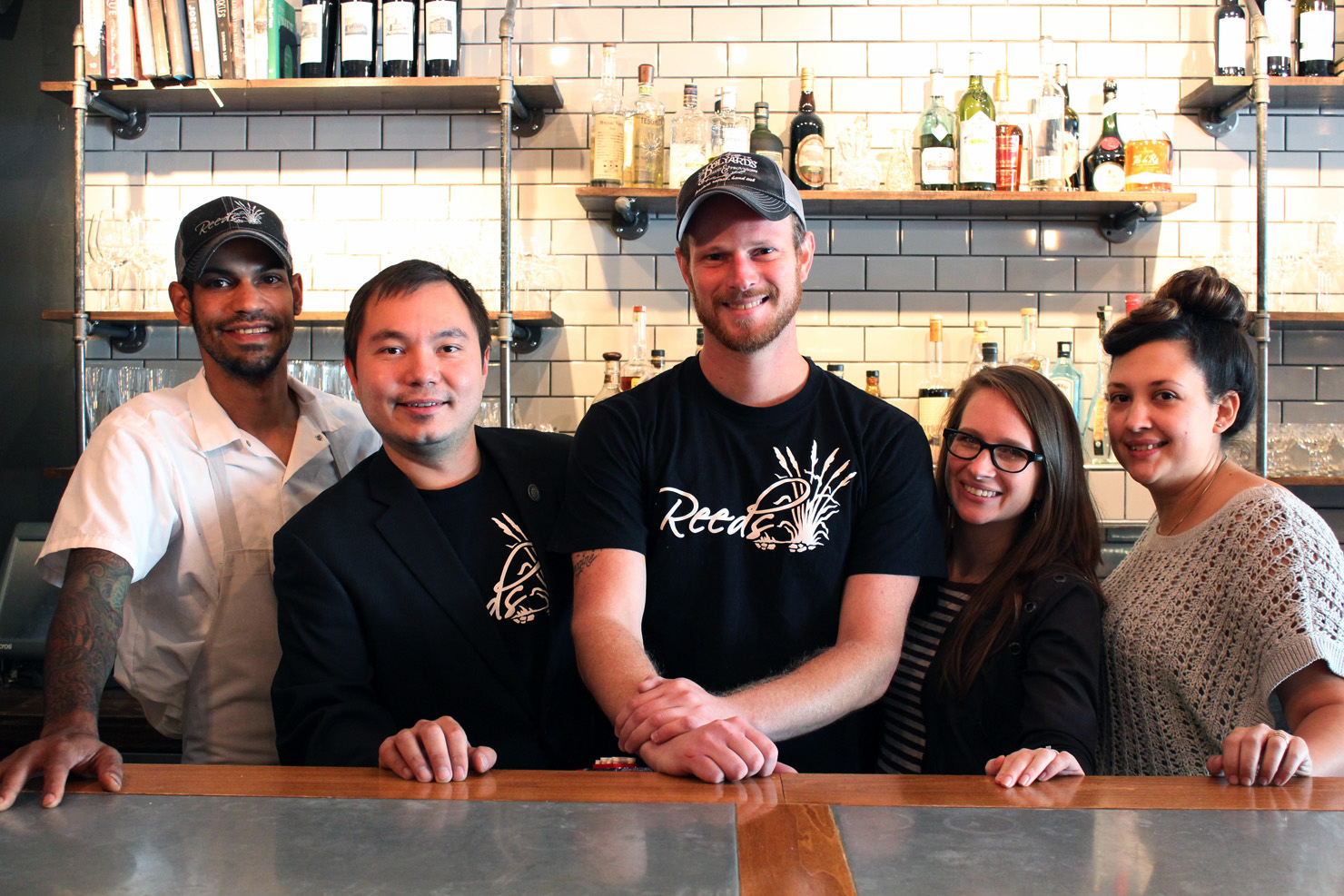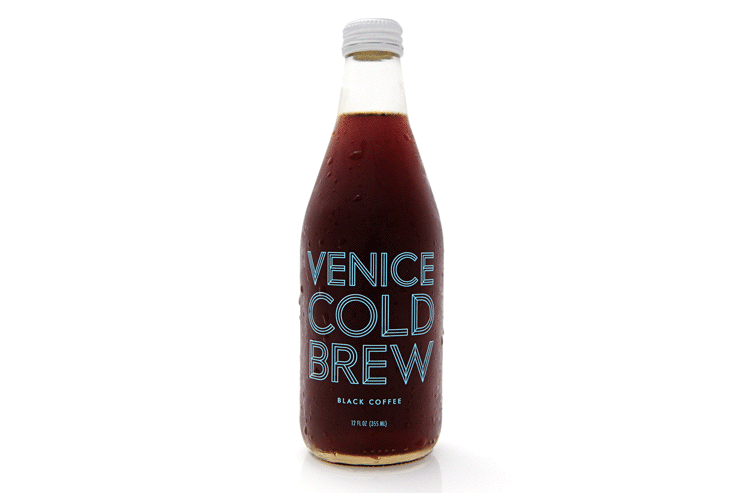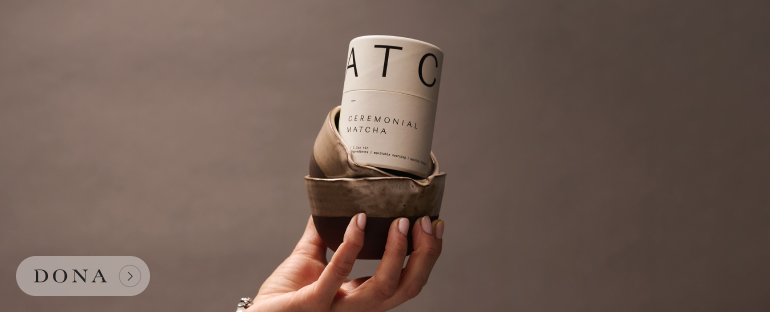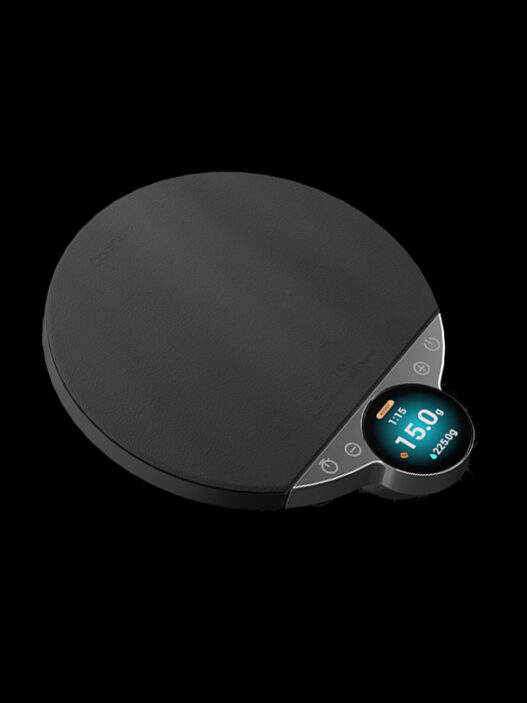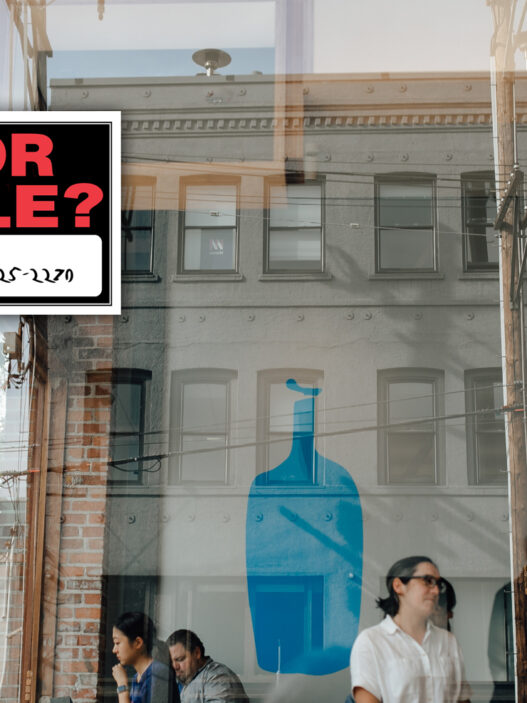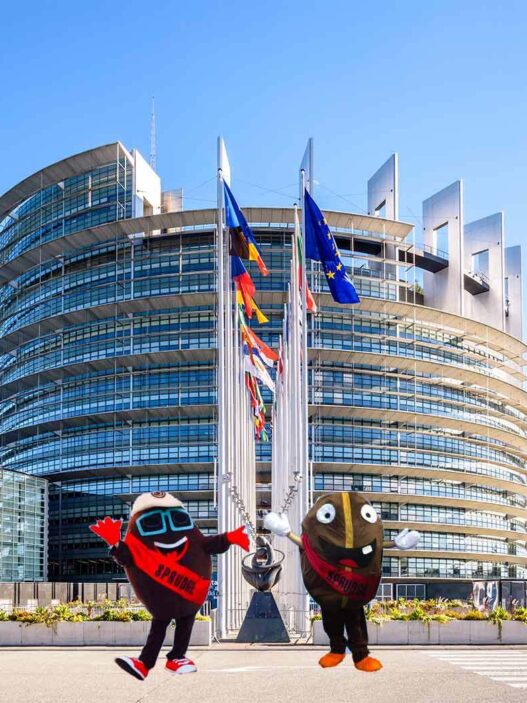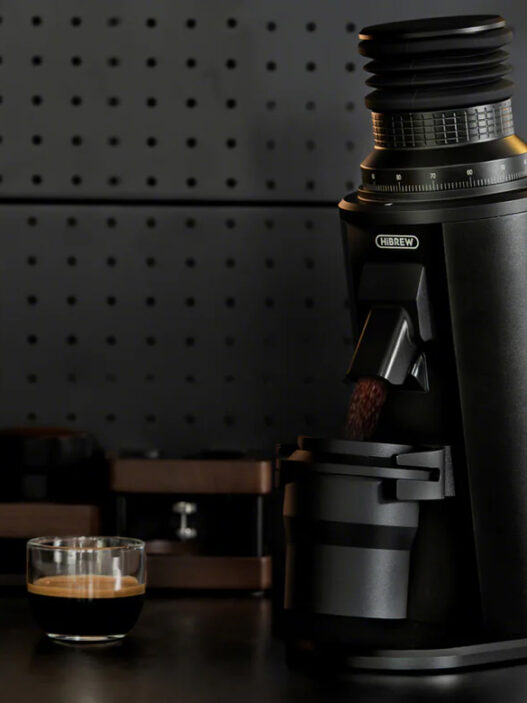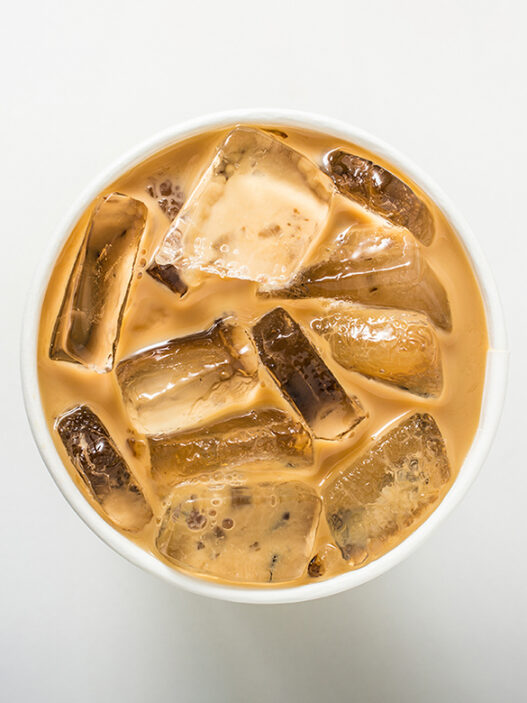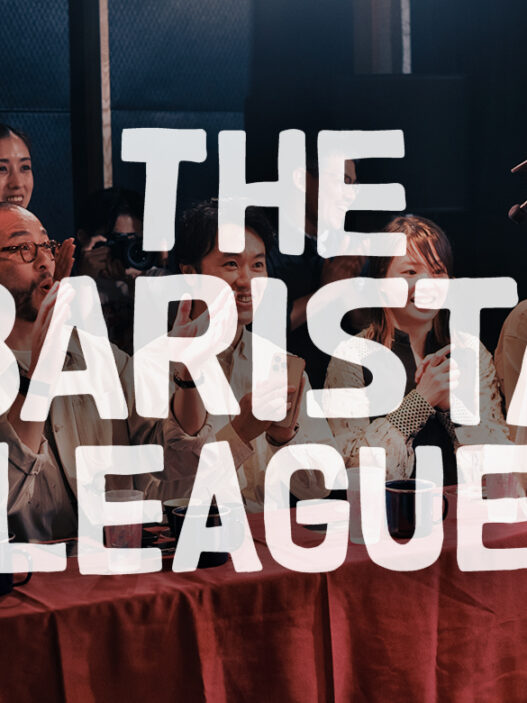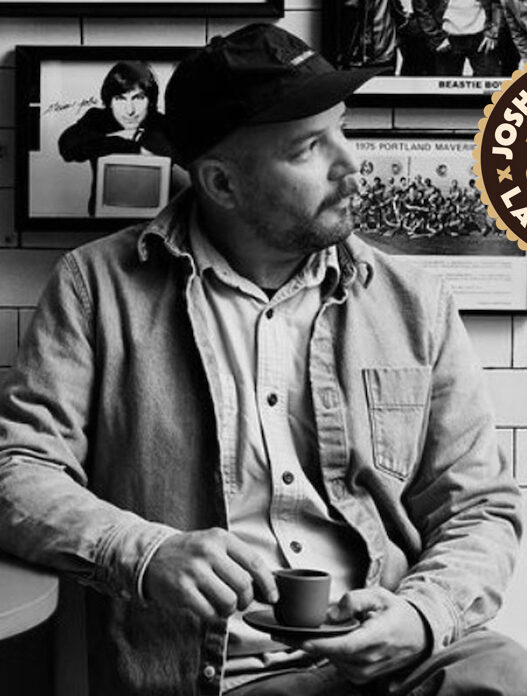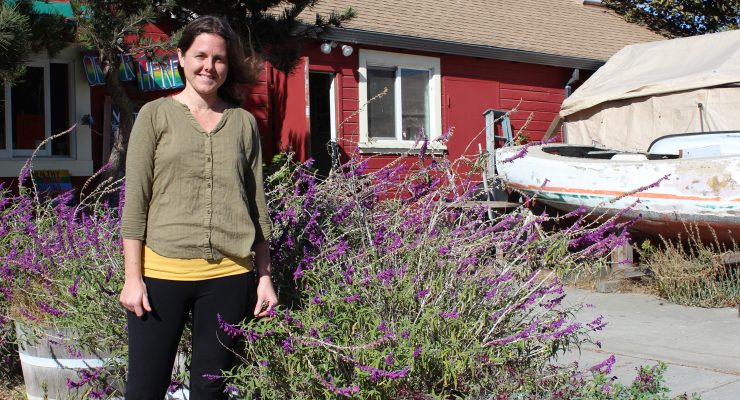
In a past life, Amber Rich studied to be an architect. She laughed a little telling me this as we walked between buildings across the Waterside Workshops campus. After all, she was in college then. But looking around today—at the helmeted people with rolled-up pants-legs walking their bikes into and out of Street Level Cycles, the dog-walkers from the nearby animal shelter with leashes in one hand and to-go cups of coffee from the Waterside Cafe in the other, and the families paddling out on the lagoon in rented Berkeley Boathouse canoes—that Rich might’ve spent her life creating structures from scratch doesn’t come as such a surprise.
With two city-owned buildings, leased for cheap in exchange for promises to renovate, Rich co-founded Waterside Workshops in 2006, giving the East Bay reason to seek out the then-languishing Berkeley Aquatic Park for the first time since the seventies. In those intervening years, the 70-acre recreation area had become better known for the things dumped into and growing on top of its lagoon than the businesses alongside it. “But West Berkeley,” Rich assures, “is going through a major transition.”
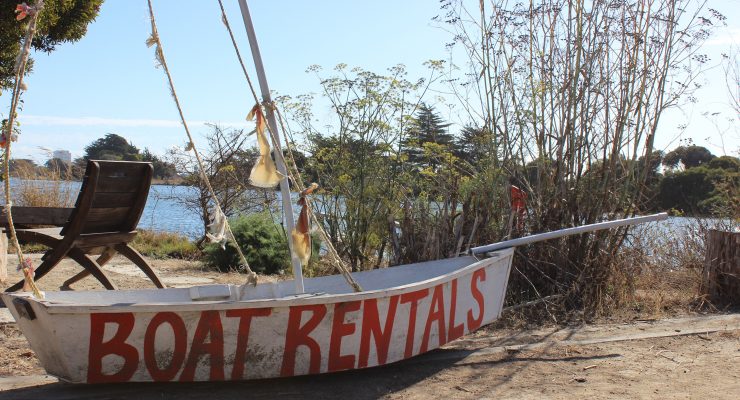
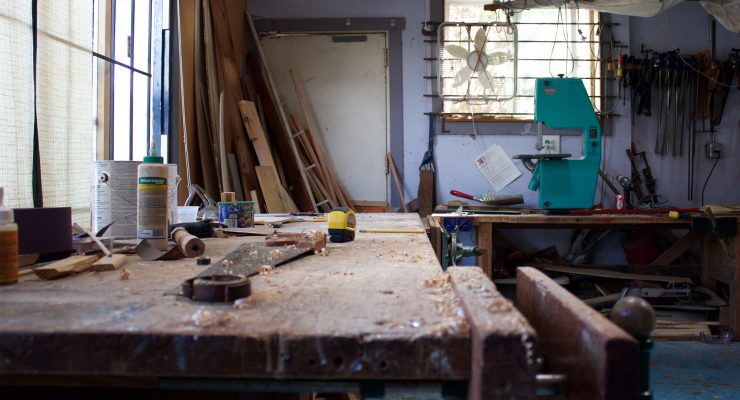
In the beginning, her goal was simply to create a space for the community to gather and for local students to learn a thing or two about bike repair and how a wooden boat makes the transition from blueprint to buoyant. But it soon became clear that Waterside could do the most good by turning its focus toward those in greater need. While they still offer classes and internships to middle and high-income youth (with tuition on a sliding scale) and free, open bike maintenance workshops for the community at large, the overwhelming majority of the programs at Waterside Workshops support low-income youth. From offering free classes, providing interns with living stipends, to accompanying students to court, Rich pretty much does whatever she has to to help her kids, as she says, break out of their cycles. And it doesn’t stop there: Waterside fills out its staff with those former students and interns. From the guys teaching gear mechanics to those pouring latte art, Waterside’s is a powerful circuit.
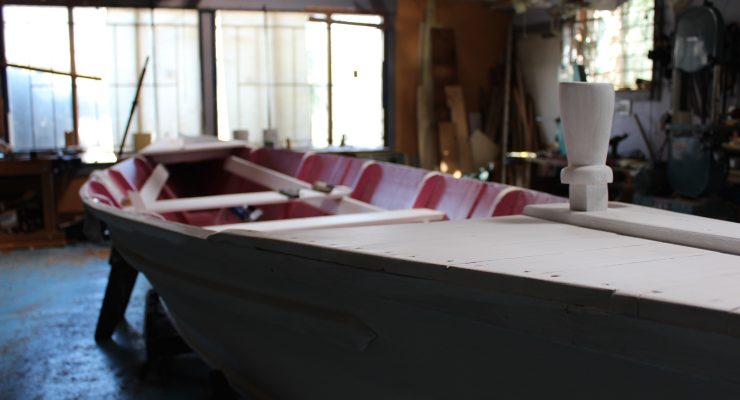
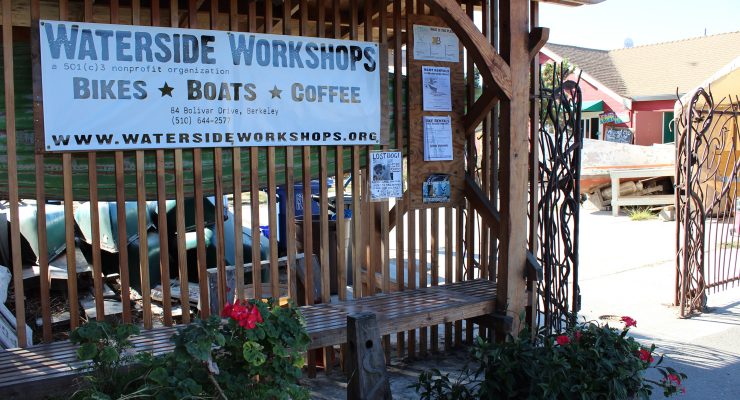
Which brings us to the Waterside Cafe itself.
The space peeks out through a walk-up window onto a patio littered with picnic tables and hand-built chairs. In 2012, after acquiring and renovating a third building less than a stone’s throw from her existing spaces, Rich found herself with the perfect opportunity to grow in another way. I was curious how a non-profit goes from fixing bike chains and planing kayak hulls one day to serving pour-overs the next, but as Rich tells it, the transition really wasn’t such a jump.
“I’ve always loved coffee,” she said, “and we had a couple kids who were really into it, and so they helped us with every step.” And she means literally every step. From the renovations themselves (fixing windows, wiring electricity, painting walls) to educating baristas, at this point the cafe is completely run and overseen by Rich’s former students. This wasn’t always the case, but when I asked her how often she finds herself behind the bar, she shakes her head.
“Now, not so much.”
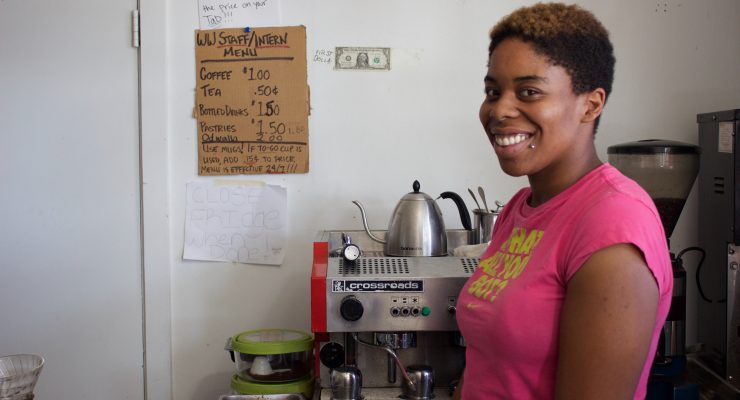
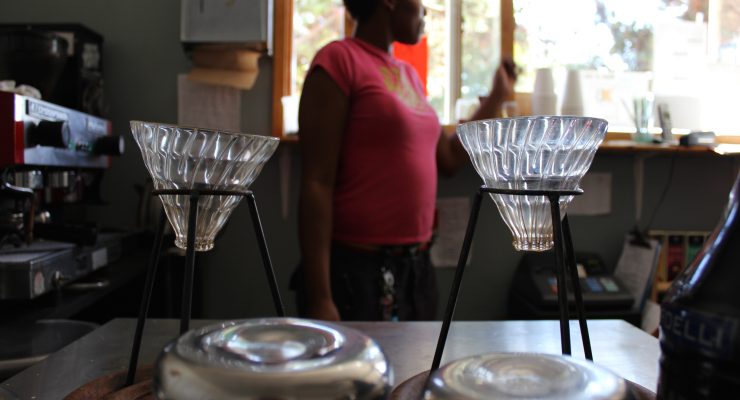
Even with such a small staff, between her head barista, assistant barista, and barista-in-training, they’ve got it covered. Self-sufficiency is both a by-product of being part of Waterside’s community and a designed outcome of its programming. That her kids should not only be able to stand on their own in her shops but in the greater community is the expectation. And it’s one that’s holding.
As of our conversation, one of Rich’s former head baristas had already been hired full-time at the nearby Artís Coffee—which, in addition, affords Waterside wholesale beans at a discount and the occasional barista training.
When I asked her, if nothing else, what she wanted people to know about her work, she only needed a moment to put her thoughts together.
“Exactly what we do,” she said. “Where my kids are coming from and how hard their struggle is. What they’ve been through.” But then again, “I don’t want to be plastering it everywhere. I want it to be a regular experience for everyone. We’re always going to be a touch rough around the edges, but I’ve always seen it being really coffee focused,” she said, adding, “you come for the coffee.”
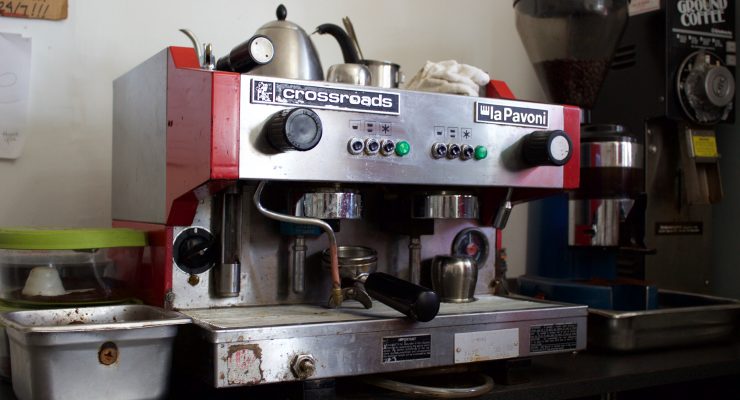
And you should come for the coffee. Or for the view. Or for the pelicans. Or to get your bike fixed, or learn how strips of wood become a kayak. Or to volunteer. Because Waterside’s operation depends on community support. Whether you’re ordering a macchiato or donating cafe equipment—the current espresso bar setup is a Franken-machine that was put together in a pinch—it all doubles back.
I wanted to get a few more pictures of the cafe, but as Rich and I went to move inside, out on the lagoon a boat idled into the corner of our vision and she stopped walking.
“Should he be standing up in that canoe?” she said, squinting.
We stood and stared. A man was struggling to guide a dull green rented canoe around the jut of the Waterside patio. I sort of expected Rich to do something, maybe talk to the guy about proper boat handling safety or politely ask him to sit down. After all, as the executive director, every problem—even a small one like that of a man overboard—was hers, right? Instead, Rich shrugged. There was someone on duty to take care of it.
Michael Light (@MichaelPLight) has written previously for Good Magazine and Wag’s Revue, and is an intern at Lucky Peach. Read more Michael Light on Sprudge.




